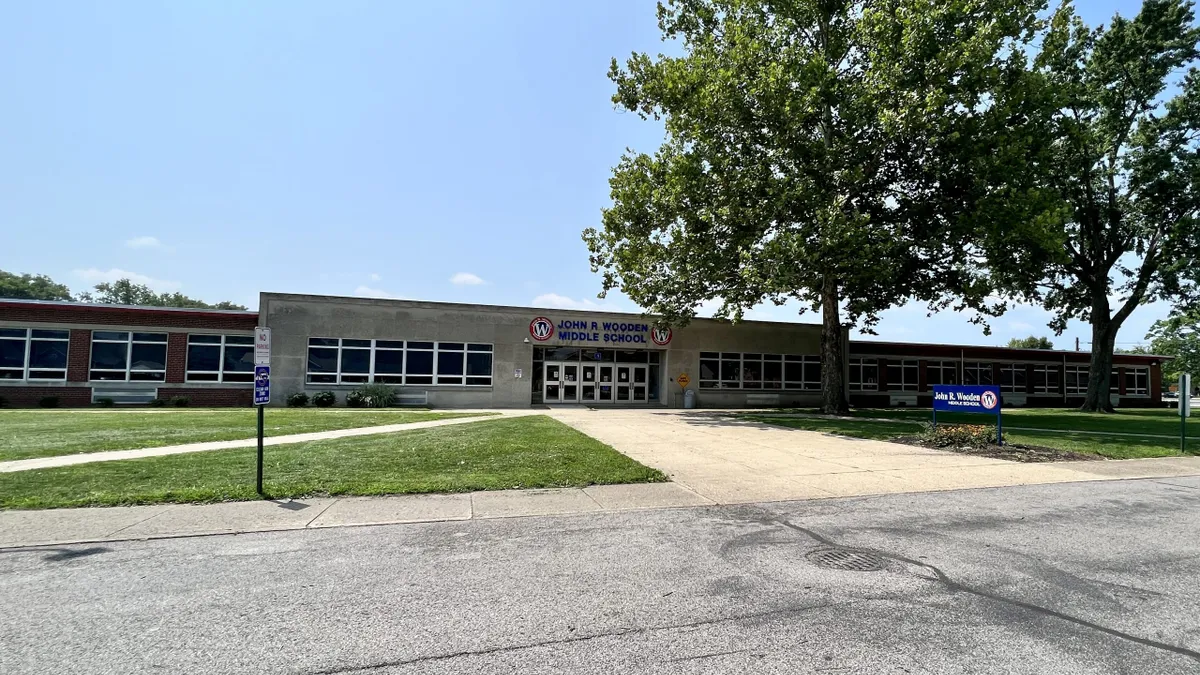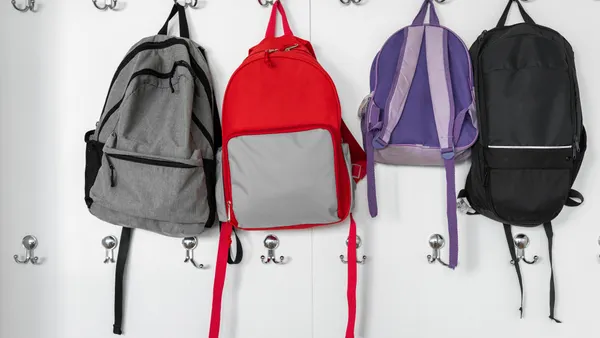Dive Brief:
-
The U.S. Supreme Court declined to consider a case on Tuesday over an Indiana school district's policies barring transgender students from using bathrooms aligning with their gender identities. The case could have settled a growing controversy in schools over whether transgender students are entitled under Title IX to access facilities that differ from their sex assigned at birth.
-
In deciding not to hear the case, the high court let stand an August 2023 decision by the 7th U.S. Circuit Court of Appeals that the Metropolitan School District of Martinsville and the student's former principal likely violated Title IX by barring transgender students from bathrooms aligning with their gender identities. That decision applies to states under the 7th Circuit's jurisdiction: Illinois, Indiana and Wisconsin.
-
Title IX policy experts and lawyers continue to look to the Supreme Court for a decision on the issue as multiple lawsuits over transgender rights, including access to school facilities and athletic teams, work their way through the courts. In absence of a Supreme Court decision, appellate courts remain split, and school districts are adopting policies that vary according to state and local laws nationwide.
Dive Insight:
The case declined on Tuesday, Metropolitan School District v. A.C., is not the first of its kind to catch the Supreme Court's attention.
In 2020, the conservative-leaning Supreme Court decided in the landmark case Bostock v. Clayton County that LGBTQ+ discrimination falls under unlawful sex discrimination in the workplace.
However, in that case, justices specifically declined to address transgender policies in schools.
In 2021, the court also declined to hear a high-profile case with the potential to decide whether schools violate LGBTQ+ students' rights when they prohibit them from using facilities such as locker rooms or bathrooms.
That case, Grimm v. Gloucester County School Board, set precedent for transgender students’ rights in the 4th Circuit, which includes Virginia, Maryland, North Carolina, South Carolina and West Virginia.
In both cases, transgender student right activists and civil rights advocacy organizations have celebrated the decisions.
Kenneth Falk, legal director of the ACLU of Indiana, called Tuesday's decision a "momentous victory for the transgender youth of Indiana." In 2021, the ACLU said the same for the Grimm case.
However, in the 7th Circuit, another case had already set precedent. In 2017, the court became one of the first federal appeals courts to rule in Whitaker v. Kenosha Unified School District that Title IX and the 14th Amendment protect transgender students from discrimination at school.
"Litigation over transgender rights is occurring all over the country, and we assume that at some point the Supreme Court will step in with more guidance than it has furnished so far," wrote 7th Circuit Judge Diane Wood in the Metropolitan decision. "Until then, we will stay the course and follow Whitaker."
These notable 7th Circuit and 4th Circuit decisions break with the 11th Circuit, which decided in 2022 that a Florida school district did not violate an 8th grade transgender boy's Title IX or constitutional rights when he asked to use the boys' bathroom. The split among the appellate courts makes the issue ripe for the Supreme Court to step in.
However, the Supreme Court's Tuesday rejection of yet another Title IX case means the nation's schools remain divided on their bathroom and facility access policies for transgender students.
The Metropolitan School District of Martinsville, for example, offered transgender students on different occasions access to unisex bathrooms in the school's health office and options of remote schooling.
"Here, the school districts persisted in treating the three plaintiffs worse than other boys because of their transgender status," Wood wrote in the 7th Circuit decision.
But in some other parts of the nation, schools are allowing transgender students to use bathrooms aligning with their gender identities.
One such district policy in Ohio led parents to sue the Bethel School District for violating their rights to direct the care of their children and freely exercise their religion. That case fell through last year after a U.S. district court judge dismissed it.
In the meantime, the U.S. Education Department under President Joe Biden has made clear that it interprets Title IX to protect transgender students. But the department's delay in cementing that definition into regulation has irked educators and advocates who are subject to conflicting local laws for now.
Nine states ban people who are transgender from using bathrooms and facilities consistent with their gender identities in schools, according to a state tracker from the Movement Advancement Project. At least three additional states define "sex" in a way that could impact student access.












